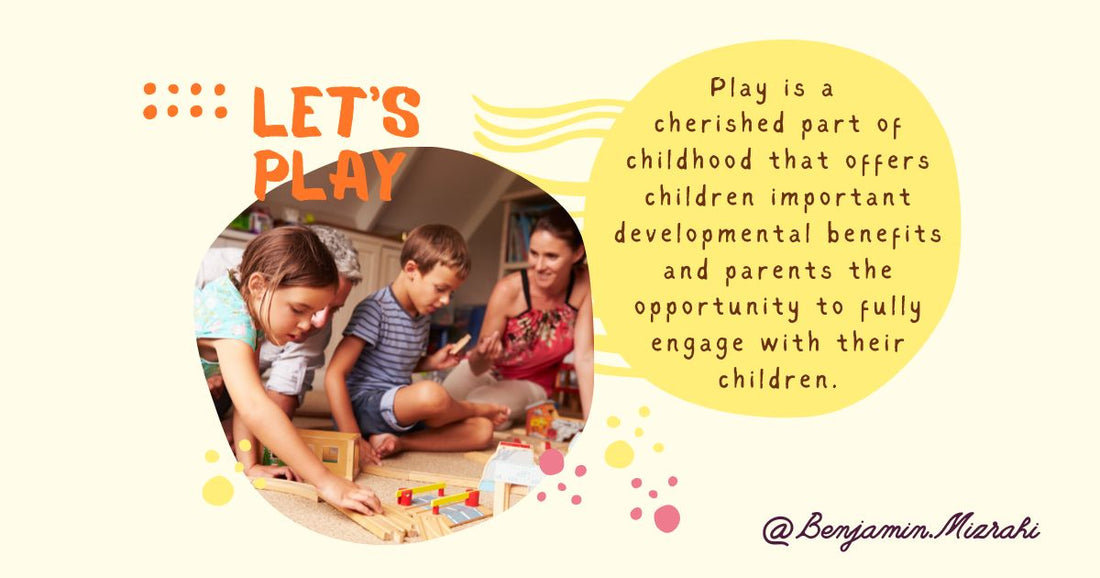
The Benefits of Play
Share
Play improves the cognitive, physical, social, and emotional well-being of children and young people. Through play, children learn about the world and themselves. They also learn skills they need for study, work and relationships such as:
⭐ Play allows children to use their creativity while developing their imagination, dexterity, and physical, cognitive, and emotional strength.
⭐ Play is important to healthy brain development.
⭐ It is through play that children at a very early age engage and interact with the world around them.
⭐ Play allows children to create and explore a world they can master, conquering their fears while practicing adult roles, sometimes in conjunction with other children or adult caregivers.
⭐ As they master their world, play helps children develop new competencies that lead to enhanced confidence and the resiliency they will need to face future challenges.
⭐ Undirected play allows children to learn how to work in groups, to share, to negotiate, to resolve conflicts, and to learn self-advocacy skills.
⭐ When play is allowed to be child driven, children practice decision-making skills, move at their own pace, discover their own areas of interest, and ultimately engage fully in the passions they wish to pursue.
When parents observe their children at play or join with them in child-driven play, they are given a unique opportunity to see the world from their child’s vantage point as the child navigates a world perfectly created just to fit his or her needs. The interactions that occur through play tell children that parents are fully paying attention to them and help to build enduring relationships.
Coach Benjamin Mizrahi. Educator. Learning Specialist. Family Coach. Father. Husband.
More articles on EXECUTIVE FUNCTIONS COACHING (mrmizrahi.com)
